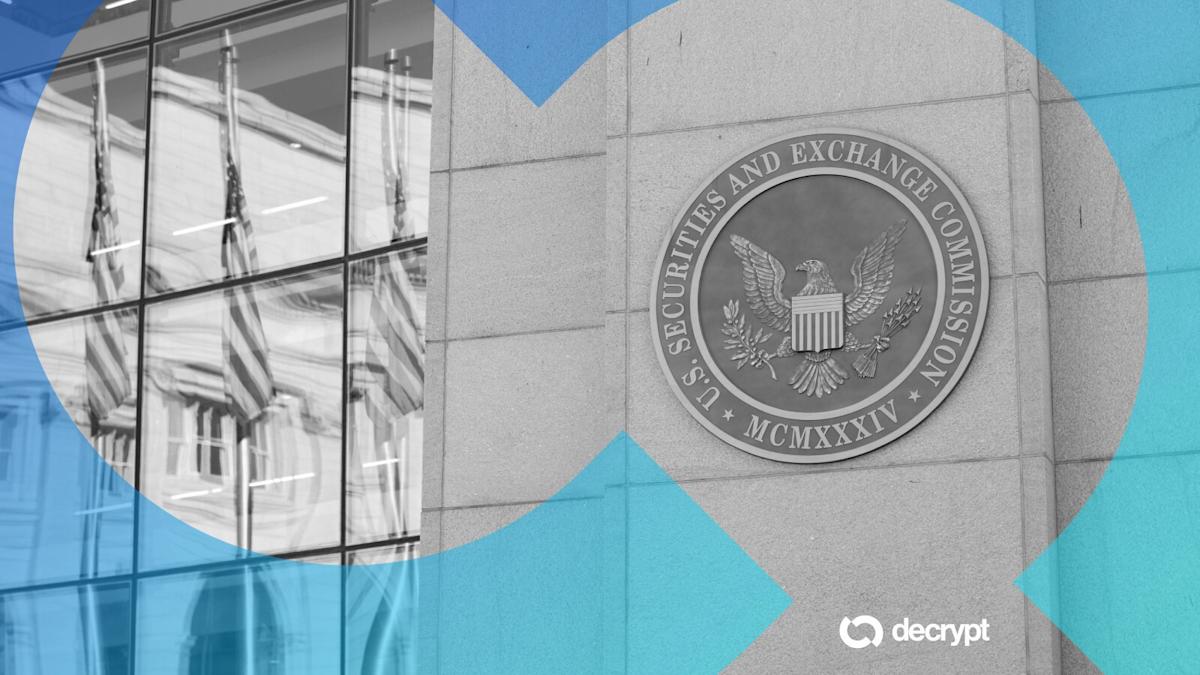SEC Clears Path for ‘Waves’ of Crypto ETFs With New Listing Standards
The U.S. Securities and Exchange Commission signed off Wednesday on new generic listing standards for commodity-based trusts, a move that analysts say could swing the door wide open for crypto products beyond Bitcoin and Ethereum.
The new standards, approved for Nasdaq, Cboe BZX, and NYSE Arca, allow trusts that meet defined criteria to list without a separate Commission order. They bar leveraged and inverse structures, but create a pathway for commodity or crypto-linked products to qualify more quickly.
“It was expected, but big, because it’s gonna mean that about 12 to 15 coins are good to go,” Eric Balchunas, senior ETF analyst at Bloomberg Intelligence, told Decrypt in a call. “You start getting the coins coming in waves,” he said, adding that this factor is “pretty big” considering that “right now, only two really exist under the 33 Act.”
Balchunas was pointing to the Securities Act of 1933, often shortened to the ’33 Act. It is a U.S. statute that governs the initial offer and sale of securities to the public and requires issuers to register their products with the SEC and provide full, fair disclosure in a prospectus.
That statute has long been “the more appropriate place to file them,” for commodity-style funds like SPDR Gold Shares and BlackRock’s iShares Bitcoin Trust, Balchunas explained.
“It’s going to be real nice for investors to have 33 Act spot ETFs with reasonable fees and low trading spreads in the ETF wrapper, which has been vetted by the SEC. It’s a beautiful thing,” Balchunas said.
Avalanche, Sui, and Bonk ETFs Test SEC as Issuers Push Into Riskier Territory
In a section on the discussions around the standards, the SEC said the rules are “designed to help prevent fraudulent and manipulative acts and practices” while improving market transparency and investor protection. These steps help “perfect the mechanism of a free and open market and a national market system,” the discussion reads.
In any case, the standards would require underlying assets to trade on surveilled markets, have a futures history, or already back an exchange-traded fund with significant exposure.
Trusts must also publish daily holdings, net asset values, and liquidity policies, while market makers face trading limits and firewalls to block misuse of non-public information.
Dogecoin Rises 20% as Treasury Firm Amasses DOGE, ETF Nears Launch
Still, Balchunas thinks the SEC’s latest action sets the stage for the broadest expansion of crypto ETFs since spot Bitcoin products debuted last year.
Asked about ETF expectations for the near term or within the year, Balchunas said he sees Solana and Litecoin leading the next wave of approvals.



Leave a Comment
Your email address will not be published. Required fields are marked *